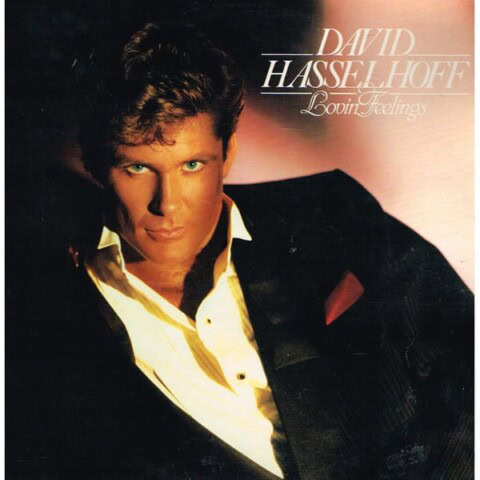In ’97 the former Yes/King Crimson drummer got together with a couple of jazzers to make one of his most endearing albums, writes GARY STEEL
RANDOM PLAY IS A REGULAR COLUMN IN WHICH GARY STEEL RANDOMLY SELECTS AND DISSECTS AN ALBUM FROM HIS COLLECTION.

Bill Bruford had just finished what turned out to be his last stint with progressive rock group King Crimson when a rich fan bankrolled a new project and the drummer was able to make good on a suggestion made by another fan that he should collaborate with 12-string guitar great Ralph Towner. The proof of the pudding was the 1997 CD, If Summer Had Its Ghosts (DGM), and making up three of a perfect trio was the brilliant jazz bassist Eddie Gomez.
The album’s 11 medium-length instrumental pieces are as gorgeous as they are intermittently flawed. It’s as though the misplaced apostrophe on the title (not reproduced on this page) is an indication of a project that hasn’t been quite as well thought-through as it might have been, but which lets shards of genius shine through the cracks.

Bruford is, of course, one of rock’s greatest drummers, and his work with the ’72-’74-era King Crimson is so scintillatingly amazing that his ‘80s work with a new iteration of the same group playing an electronically-enhanced kit pales by comparison. (Yes, I realise that fans of the early ‘80s KC will disagree, but I can live with that).
Bruford extended his skillset with late ‘70s groups like UK and late ‘80s groups like Earthworks, where he moved through jazz-rock and into world music territory. His discography is most certainly worth investigating. He’s never been a straight-ahead jazz guy, however, and one of If Summer Had Its Ghosts’ drawbacks, at least part of the time, is that here it feels like he’s trying to shoehorn himself into an accepted notion of jazz style because that’s what his collaborators do.

Not that this is in any way conventional jazz. Ralph Towner is a unique figure whose work with acoustic group Oregon and a range of collaborations on the German label ECM varies from tear-inducing beauty to exploratory world music to freeform improvisations. Eddie Gomez, meanwhile, is an acoustic bassist whose main claim to fame was as a long-term member of pianist Bill Evans’ band, and a welter of session work. In his often scathing (but very good) autobiography, Bruford describes Gomez as very expensive, but on this evidence, he was worth every dime.
If Summer Had Its Ghosts has two main problems. Firstly, Bruford is many things on drums but he just doesn’t swing in a way that a jazz drummer knows how. This means that here, during the more dramatic passages his work is absolutely sterling, but on the quieter bits, his pneumatic tic-tic-ticking sounds tinny and a little wrong. (If you want to hear great drumming on a record with similar acoustic tonal properties check out the rather obscure collaboration Oregon did with Elvin Jones in the ‘76, Together, on the Vanguard label). Secondly, when Bruford does occasionally add electronics, they sound pre-programmed and dated.

While it’s Bruford’s name on the lion’s share of compositions, the flavour of the record is determined largely by Towner and Gomez, and it’s Towner’s instantly recognisable, characterful, ringing acoustic guitar and rather great piano playing (on a few occasions overdubbed so that he’s playing both at the same time) that dominates this album. Gomez is apparently playing acoustic bass, but it’s miked so close that it sounds like some sort of organic hybrid, and his performances are uniformly great. It helps that the recording is audiophile quality, despite the sessions having taken place over a mere four weeks in a tiny rural studio in West Shokan, New York.

Given Towner’s overall dominance, I’m not sure why Bruford gets top billing. Perhaps it’s because he organised the whole thing and wrote the tunes. Ultimately, it doesn’t matter. At least Towner and Gomez get their names on the cover. It’s clear from Bruford’s book that he has immense respect for Towner, who he describes as “one of the great acoustic guitarists of our time.” He goes on to write: “Ralph always struck me as a bit of an outsider, a classically trained musician whose acoustic guitar playing centred on the silver shards of light he could extract from the unwieldy 12-string version of the instrument. If I’m too rock for jazz and too jazz for rock, then he is probably too jazz for classical and too classical for jazz.”
It’s true that some may find Towner’s sound too pretty. Oregon can sometimes cross over from bucolic acoustic jazz-fusion to easy listening, especially when oboist Paul McCandless is tootling away on a saxophone. But that’s the irony of jazz, which can be simultaneously deep and almost ‘easy listening’.

As for Bruford’s compositions, they’re pretty good even if they don’t have melodies that you find yourself recalling. Bruford noted that he’d made the mistake of writing too densely when musicians of this calibre and style really just require key elements that they can then improvise on. The album doesn’t come across like that and to this listener, the musicians take Bruford’s very good ideas and run with the spectacularly.
If Summer Had Its Ghosts – which got a re-release in 2018 – is an odd release and nowhere near perfect, but it’s one that I’ll be holding onto and occasionally reach for. Why? Because despite its flaws there are moments of perfection, where Bruford does what he was born to do and lets go and forgets his jazz manners and we get to hear three superb, characterful musicians do what they do in each other’s hallowed company.













